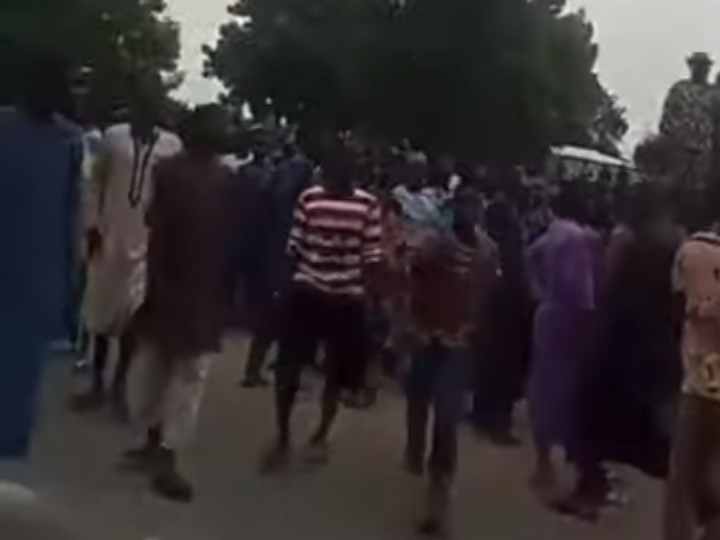
Former Boko Haram Members Protest Over Unpaid Allowance in Borno
A group of former Boko Haram members who surrendered to the Nigerian government staged a protest in Borno state on Friday, August 18, over the non-payment of their allowance. The ex-terrorists blocked the Bulumkutu-Maiduguri highway, causing a traffic jam and disrupting the movement of commuters and motorists.
The protesters claimed that they were promised a monthly allowance of N30,000 by the federal government as part of their rehabilitation and reintegration program, but they have not received it for several months. They also complained about the poor living conditions at the Hajj Camp, where they are being held pending their clearance by security agencies.
One of the protesters, who identified himself as Aliyu, said that they decided to surrender to the authorities after being convinced by the military that they would be treated well and given opportunities to start a new life. He said that they regretted their decision and felt betrayed by the government.
“We surrendered because we wanted peace and we wanted to be part of this country again. But since we came here, we have not seen any difference from how we lived in the bush. We are hungry, we are thirsty, we are sick, and we are not allowed to go anywhere. We have families and friends who are still in the bush, but we cannot contact them or visit them. And we don’t even know if they are alive or dead,” he said.
He added that they were ready to return to the bush and join their former comrades if the government did not fulfil its promises and improve their situation.
Another protester, who gave his name as Musa, said that they were not asking for too much from the government. He said that they only wanted to be paid their allowance and given some basic amenities such as food, water, electricity, health care, and education.
“We are not criminals or enemies of the state. We are Nigerians who made a mistake and we have repented. And we want to be part of this society again and contribute to its development. But how can we do that if we are treated like animals? How can we trust the government if it does not keep its word? How can we convince others to surrender if they see how we are suffering?” he asked.
He appealed to the government and the public to show them some compassion and understanding and to help them reintegrate into society.
The protest lasted for about two hours before it was dispersed by security personnel who arrived at the scene. No violence or casualties were reported during the incident.
The federal government has not issued any official statement on the matter as of the time of filing this report. However, a source from the Ministry of Humanitarian Affairs, Disaster Management and Social Development, which oversees the rehabilitation and reintegration program for former Boko Haram members, said that the delay in payment was due to some administrative and logistical challenges. The source assured that the issue would be resolved soon and that the ex-terrorists would receive their allowance as agreed.
The source also said that the ministry was working with other relevant agencies and stakeholders to improve the welfare and security of the ex-terrorists at the Hajj Camp and to facilitate their clearance and release into society.
Also, the source appealed to the ex-terrorists to remain calm and patient and to cooperate with the authorities. The source also urged them not to listen to any propaganda or incitement from their former colleagues or enemies of peace who might want to lure them back into violence.
Also, the source further appealed to the public to support the rehabilitation and reintegration program for former Boko Haram members, saying that it was a vital component of the peace process and national security. The source said that the program was aimed at restoring hope and dignity to the ex-terrorists and preventing them from returning to their old ways or joining other criminal groups.
The source said that the program was also meant to encourage more Boko Haram members who were willing to lay down their arms and embrace peace to come out and surrender, assuring them that they would be treated fairly and humanely.
According to our source, the program had recorded some successes since its inception in 2016, with over 3,000 former Boko Haram members surrendering voluntarily and undergoing various stages of rehabilitation and reintegration. The source said that some of them had been reunited with their families and communities, while others had been enrolled in vocational training, formal education, or empowerment schemes.
The source said that the program was a demonstration of the government’s commitment to ending the insurgency in the North-East region and restoring peace and stability in the country.





